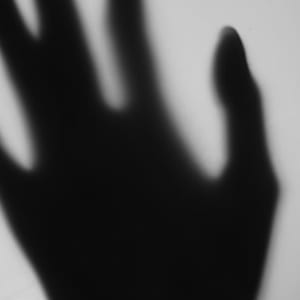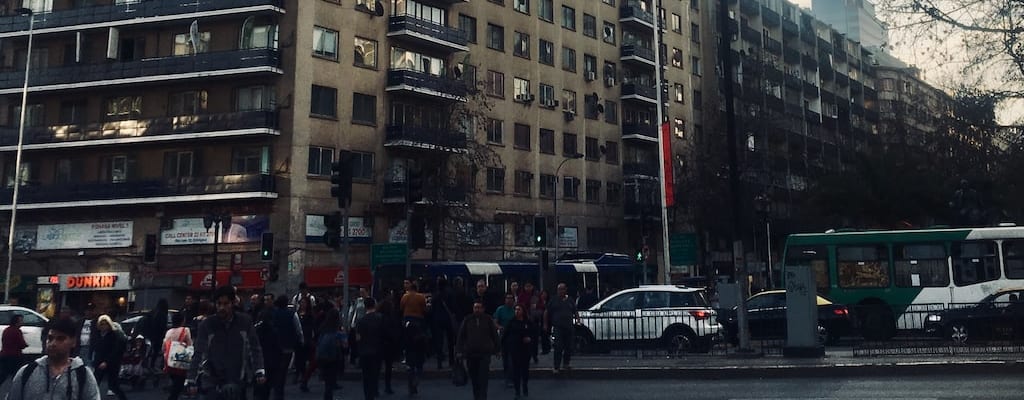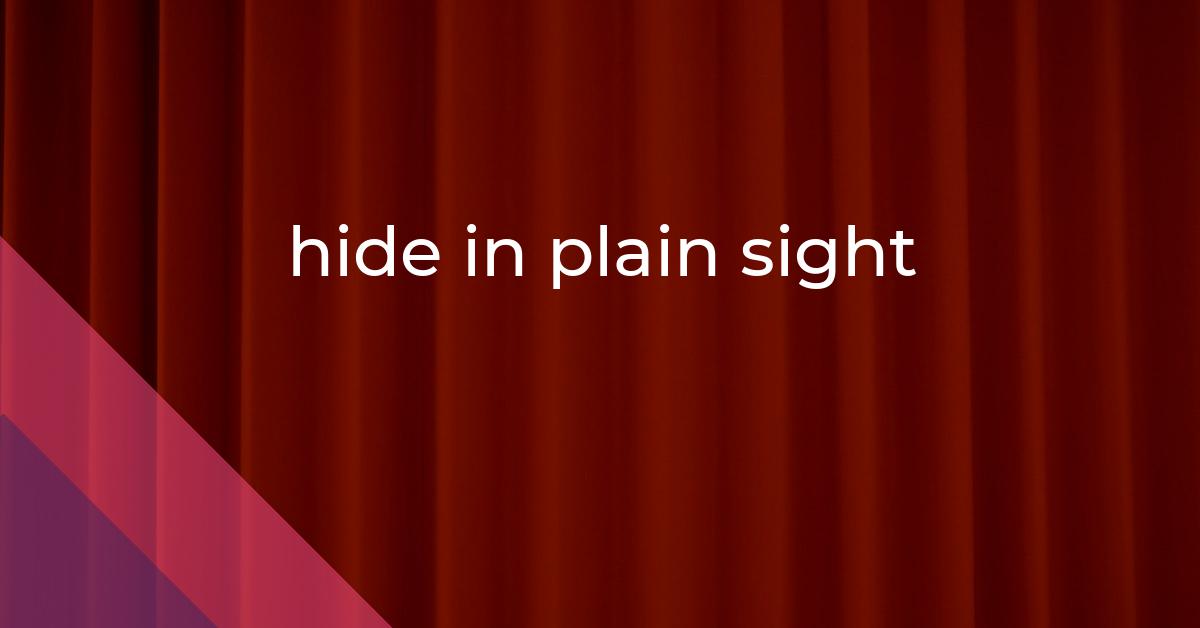hide in plain sight: Idiom Meaning and Origin
What does ‘hide in plain sight’ mean?
The idiom "hide in plain sight" means to conceal oneself or something in a way that is not obvious or easily noticed, even though it is in a highly visible or noticeable place.

Idiom Explorer
The idiom "laugh in one's sleeve" means to secretly or quietly find something amusing or funny without showing it openly.
The idiom "keep quiet" means to remain silent or not speak, especially when it is important to do so in order to maintain secrecy, avoid trouble, or not reveal information.
The idiom "keep one's head down" means to avoid drawing attention or staying out of trouble in order to stay safe or unnoticed in a dangerous or difficult situation.
The idiom "keep a low profile" means to avoid attracting attention or publicity, and to remain inconspicuous or discreet in one's actions or behavior.
The idiom "in the dark" means being unaware or uninformed about something, lacking knowledge or understanding. It is often used to describe a situation where someone is kept ignorant or intentionally left out of important information or events.
The idiom "in plain view" means something that is easily visible or noticeable, without any effort to conceal it.
The idiom "in plain sight" means something is easily visible or noticeable to everyone.
The idiom "in front of one's nose" means that something is very obvious or easy to see but is overlooked or not noticed by someone.
The idiom "hiding to nothing" means to be in a situation where one is bound to fail or face certain defeat, regardless of the efforts made. It implies a futile or hopeless endeavor with no chance of success or favorable outcome.
The idiom "hide one's light under a bushel" means to conceal or downplay one's talents, abilities, or achievements.
Camouflaging in Ordinary View
The idiom "hide in plain sight" is a phrase that is commonly used in everyday conversation. It has both literal and figurative meanings, and its origins can be traced back to the 16th century. This idiom is often used to describe a situation where something or someone is hidden or disguised in such a way that they are easily overlooked or go unnoticed.
The phrase "hide in plain sight" is believed to have its roots in hunting and military strategies. In hunting, it refers to the tactic of blending in with the surroundings in order to remain undetected by the prey. Similarly, in warfare, it refers to the strategy of disguising oneself among the enemy or within a crowd to avoid being identified as a threat. This concept of hiding in plain sight has since been adopted in various other contexts.
One example of the literal usage of this idiom can be found in the camouflage techniques used by animals, such as chameleons, to blend in with their surroundings. These creatures are able to change their color and pattern to match the environment, effectively hiding themselves in plain sight. This ability has inspired the figurative usage of the idiom, where it is often used to describe situations or individuals who are deliberately concealed or disguised in a way that makes them easily overlooked or underestimated.
An example of the figurative usage of "hide in plain sight" can be seen in the context of espionage or undercover operations. Spies or agents may adopt false identities and seamlessly blend into society, appearing as ordinary citizens while carrying out covert activities. This allows them to gather information or carry out their missions without raising suspicion. In this case, the idiom emphasizes the idea of concealing oneself in an unremarkable or inconspicuous manner, making it difficult for others to recognize their true nature or intentions.
Furthermore, "hide in plain sight" can also be applied to social or interpersonal situations. It can be used to describe someone who is unable to see or recognize something that is right in front of them, often due to their own preconceived notions or biases. For example, a person's hidden talents or abilities may go unnoticed because they do not conform to societal expectations or stereotypes. Similarly, issues or problems within a community may remain unaddressed if they are not given sufficient attention or if they are intentionally overlooked or dismissed.
Another related idiom is "hidden in plain sight". This phrase is used to describe something that is not immediately obvious or noticeable, despite being right in front of one's eyes. It implies that the object, idea, or concept is hidden or disguised in such a way that it is easily overlooked or underestimated. The idiom suggests that one must look closely or think critically in order to discover or understand what is hidden.
In the context of the idiom "hide in plain sight", "hidden in plain sight" can be seen as an extension of the concept. It emphasizes the idea that something is intentionally concealed or disguised in a manner that makes it difficult to detect or recognize. This could be due to camouflage, deception, or simply a lack of awareness or attention from others.
Another related idiom is "in plain sight". This phrase is used to describe something that is easily visible or noticeable, without any need for searching or effort. It suggests that the object or idea is clearly present and cannot be missed. In the context of the idiom "hide in plain sight", "in plain sight" can be seen as the opposite of the concept. It implies that something is not hidden, disguised, or concealed, and is instead fully visible and apparent to all.
The idiom "hide in plain sight" has its origins in hunting and warfare and has evolved over time to encompass various literal and figurative meanings. It is commonly used to describe situations where something or someone is concealed or disguised in a way that they can easily go unnoticed or underestimated. This idiom reflects the concept of blending in with the surroundings or appearing unremarkable, making it difficult for others to recognize the true nature or significance of what is hidden. While the idiom has been widely used and studied, there is still much to explore in terms of its application and interpretation in different contexts.
Example usage
Examples of how the idiom *hide in plain sight* can be used in a sentence:
- Despite his bright clothing, the talented spy managed to hide in plain sight in the crowded market.
- The valuable diamond necklace was hidden in a simple shoebox, perfectly hiding in plain sight.
- The elusive criminal had been living under a false identity, hiding in plain sight, for years.
More "Deception" idioms



